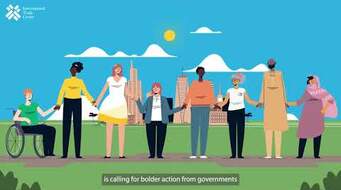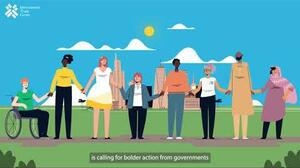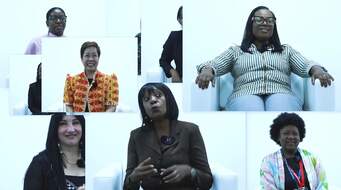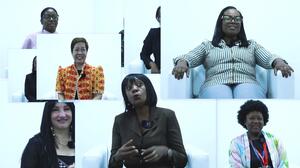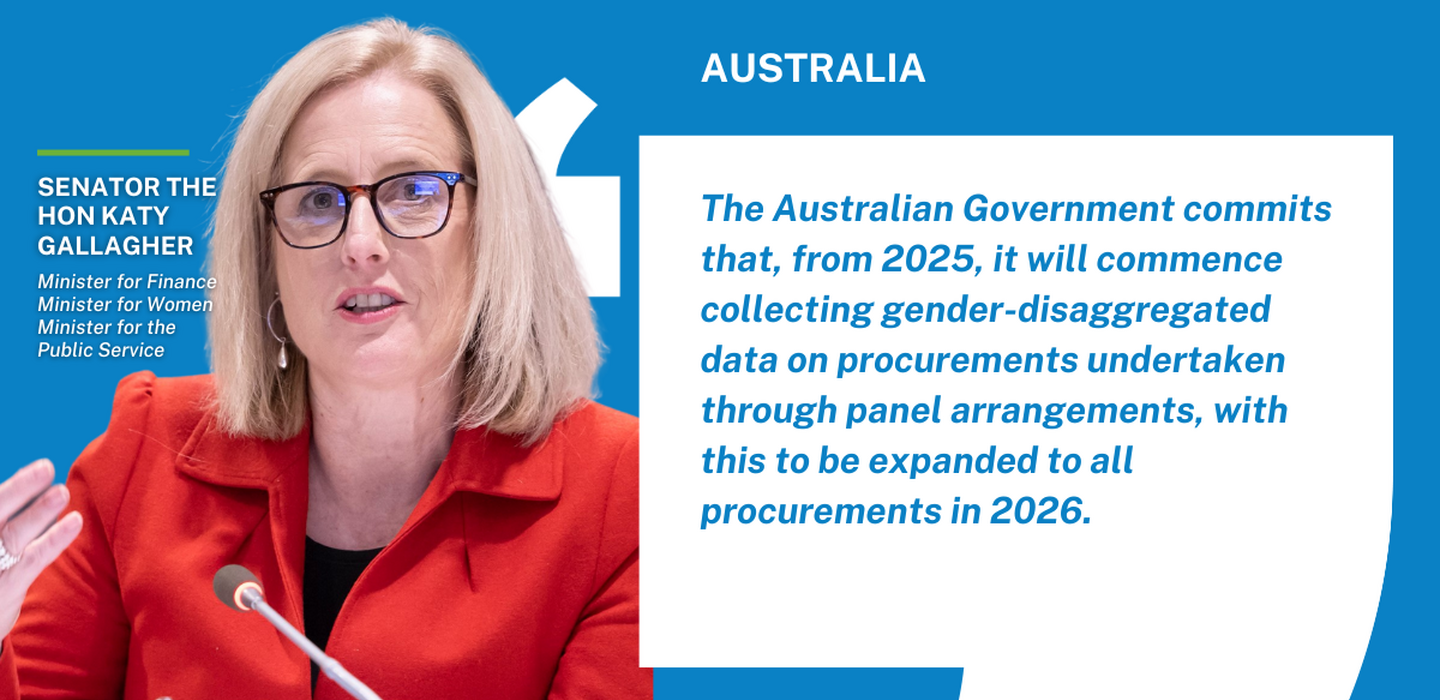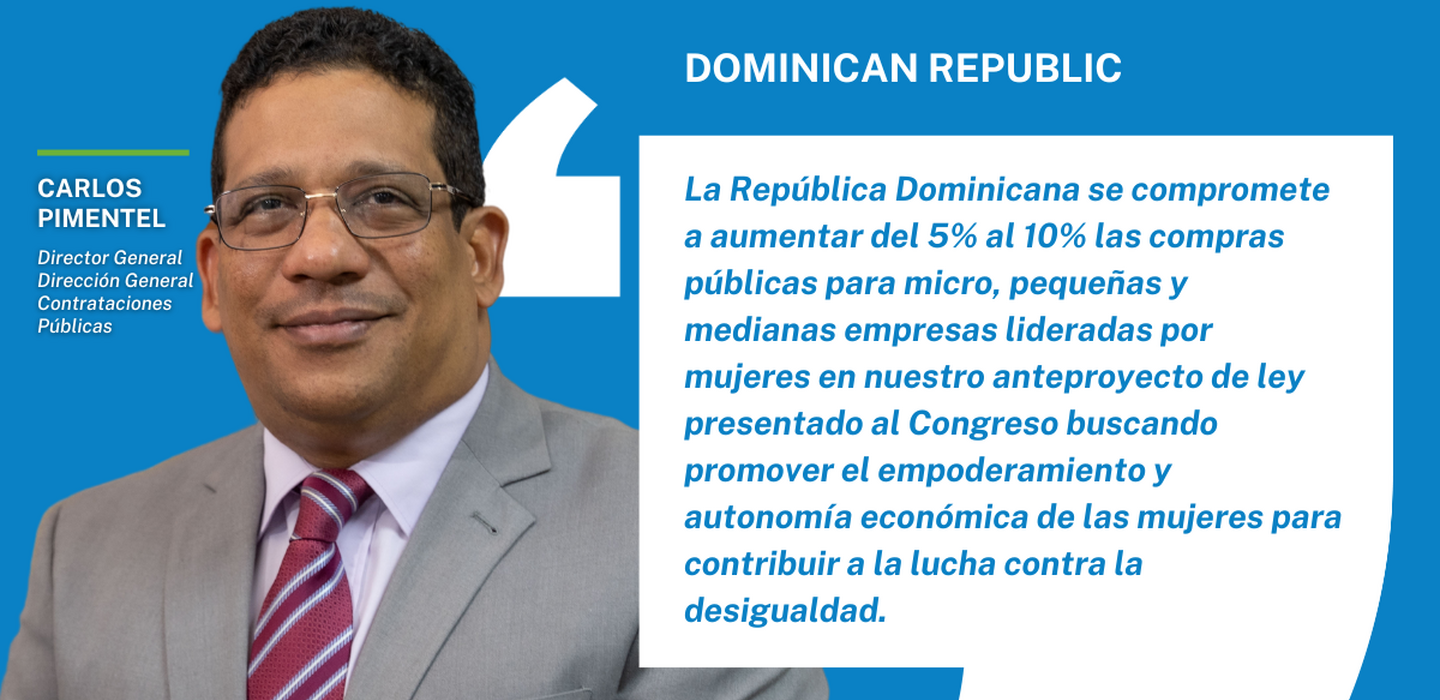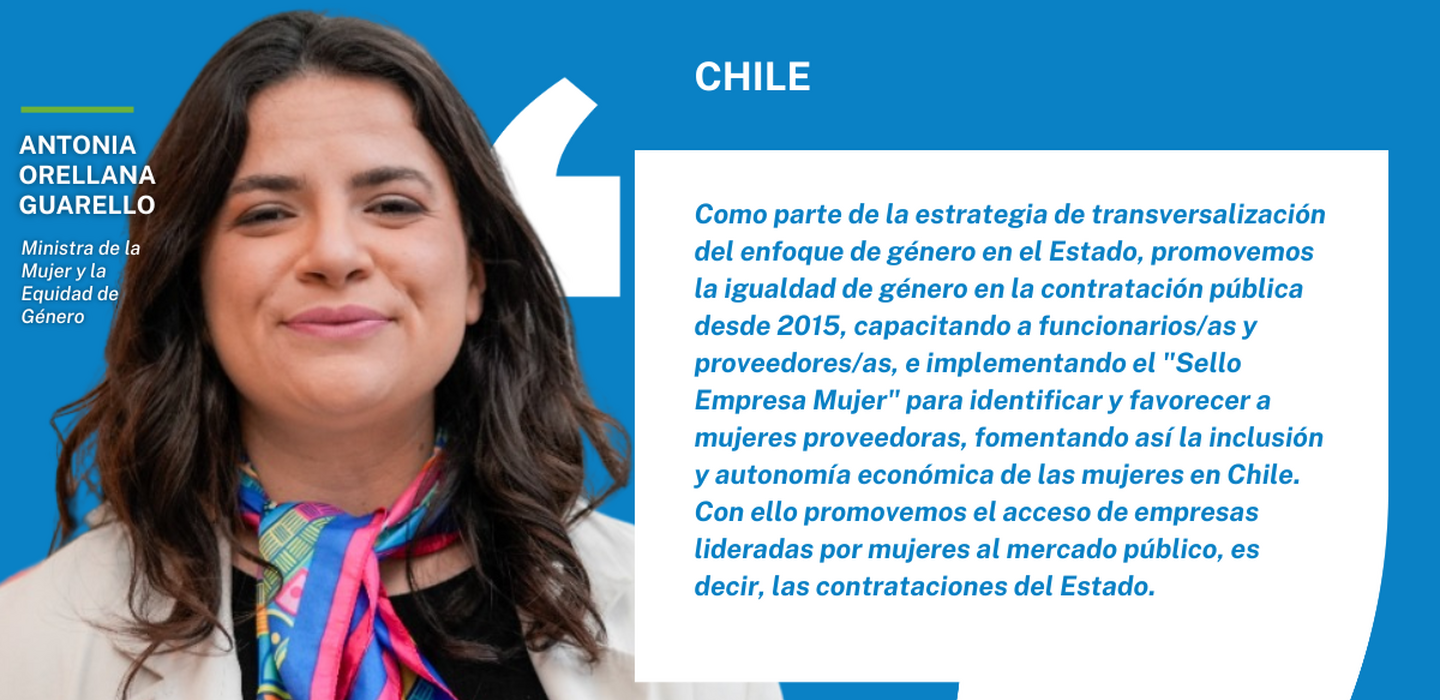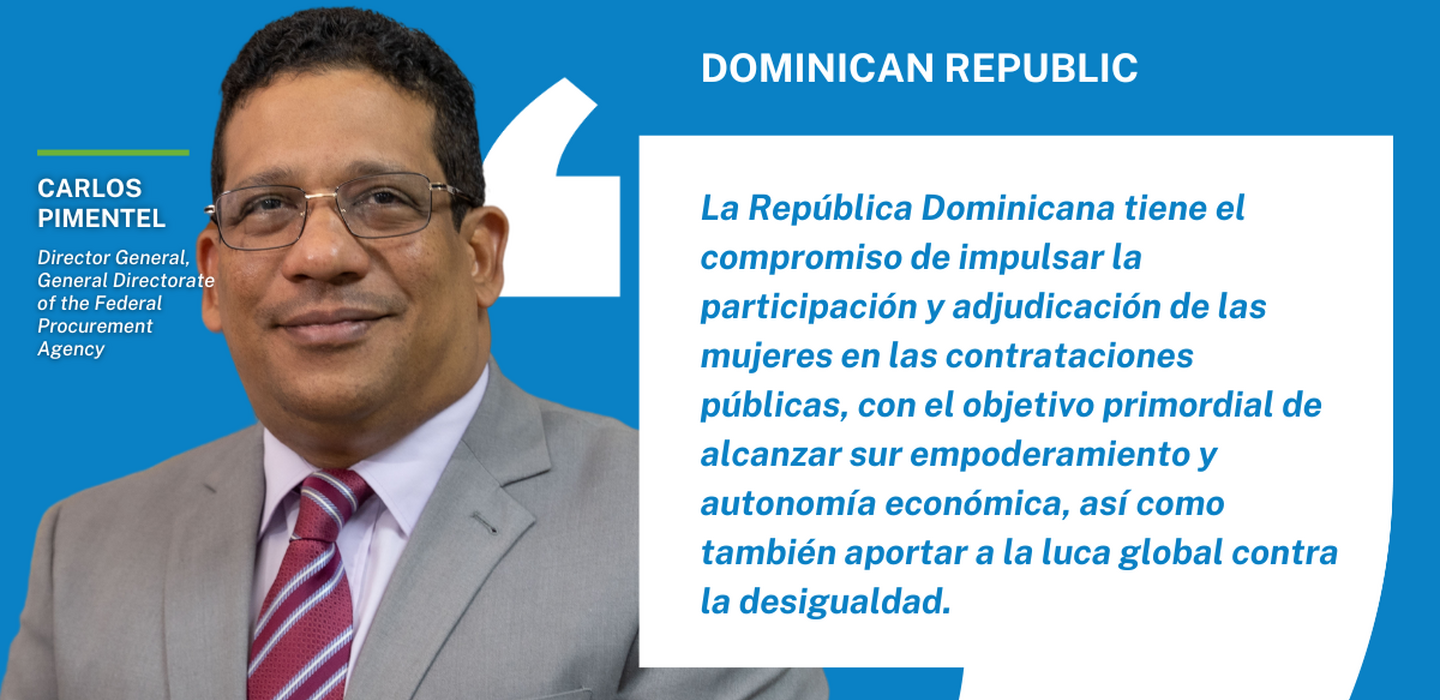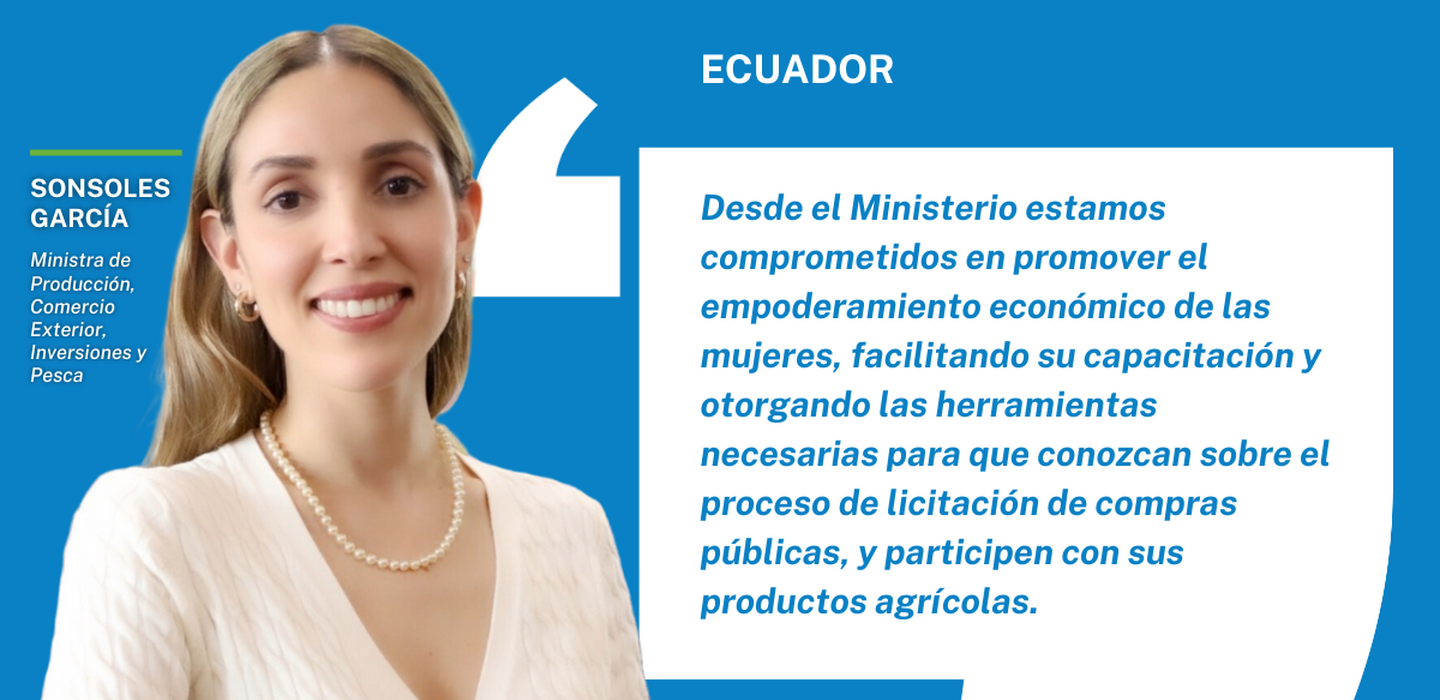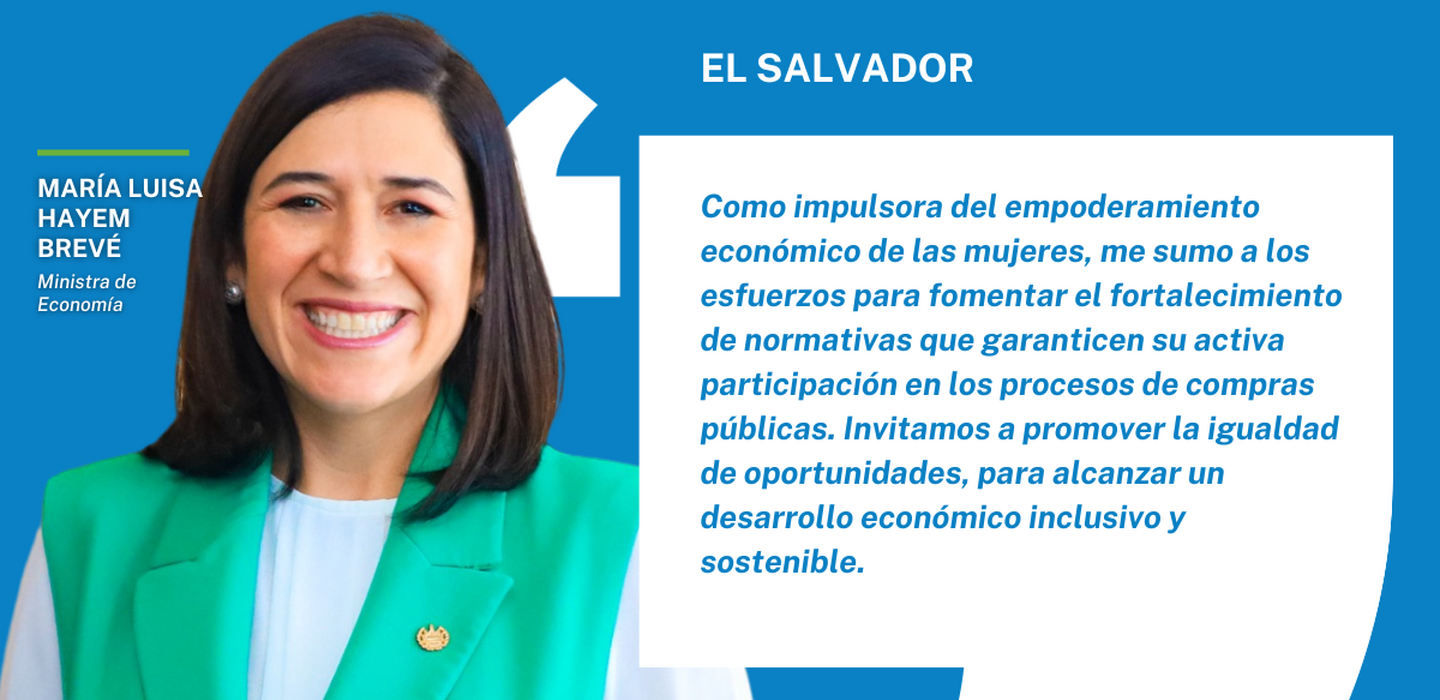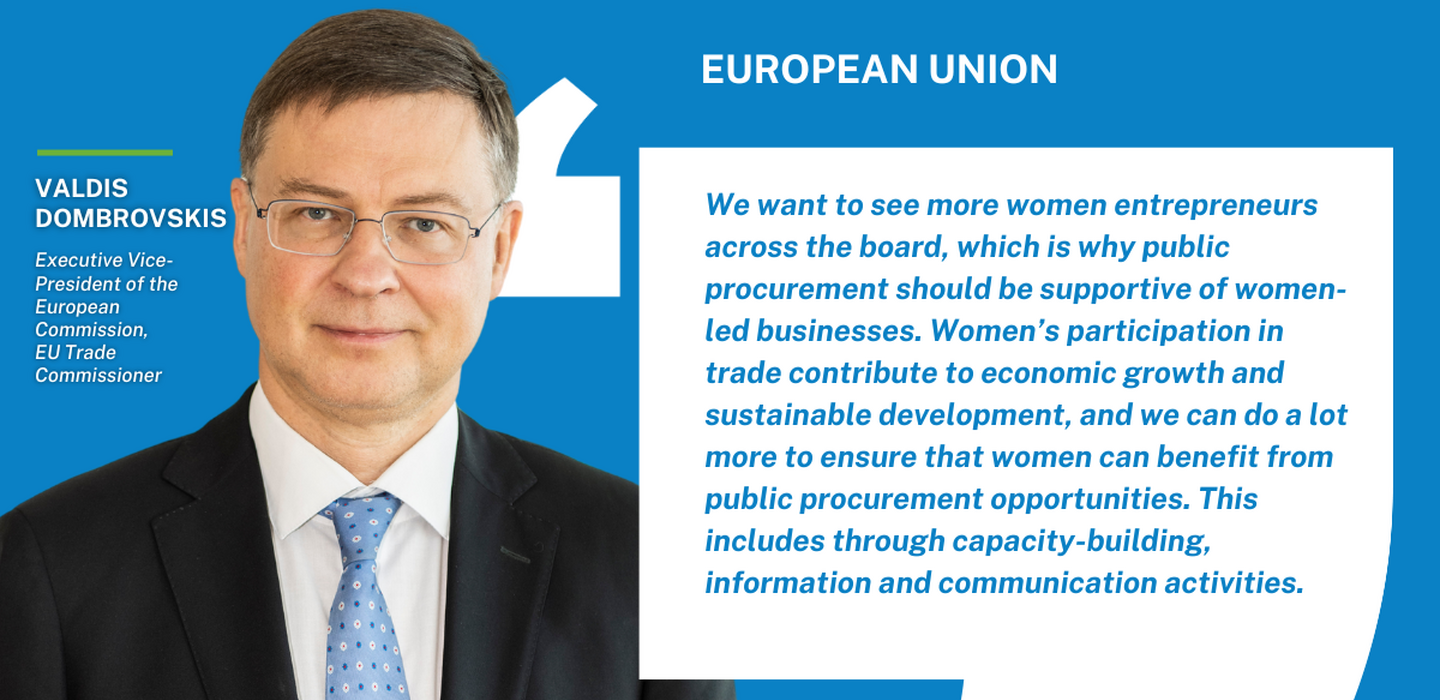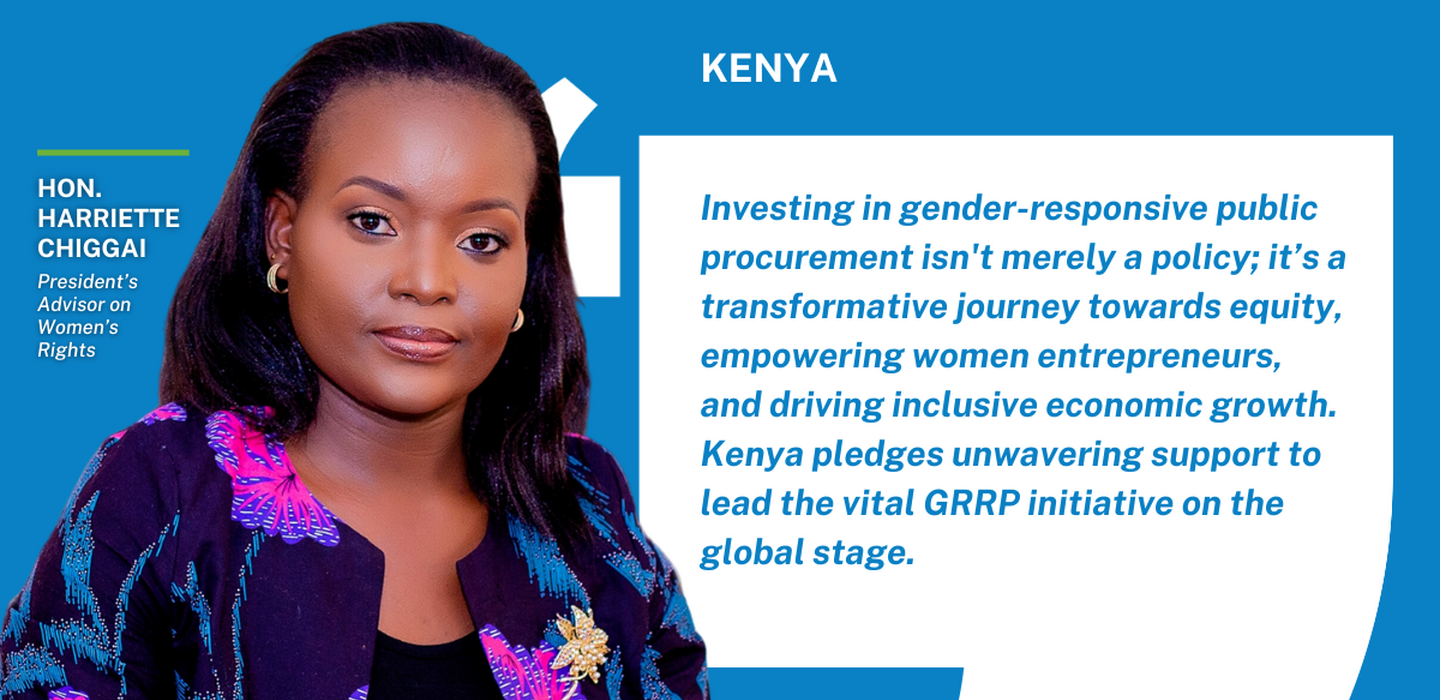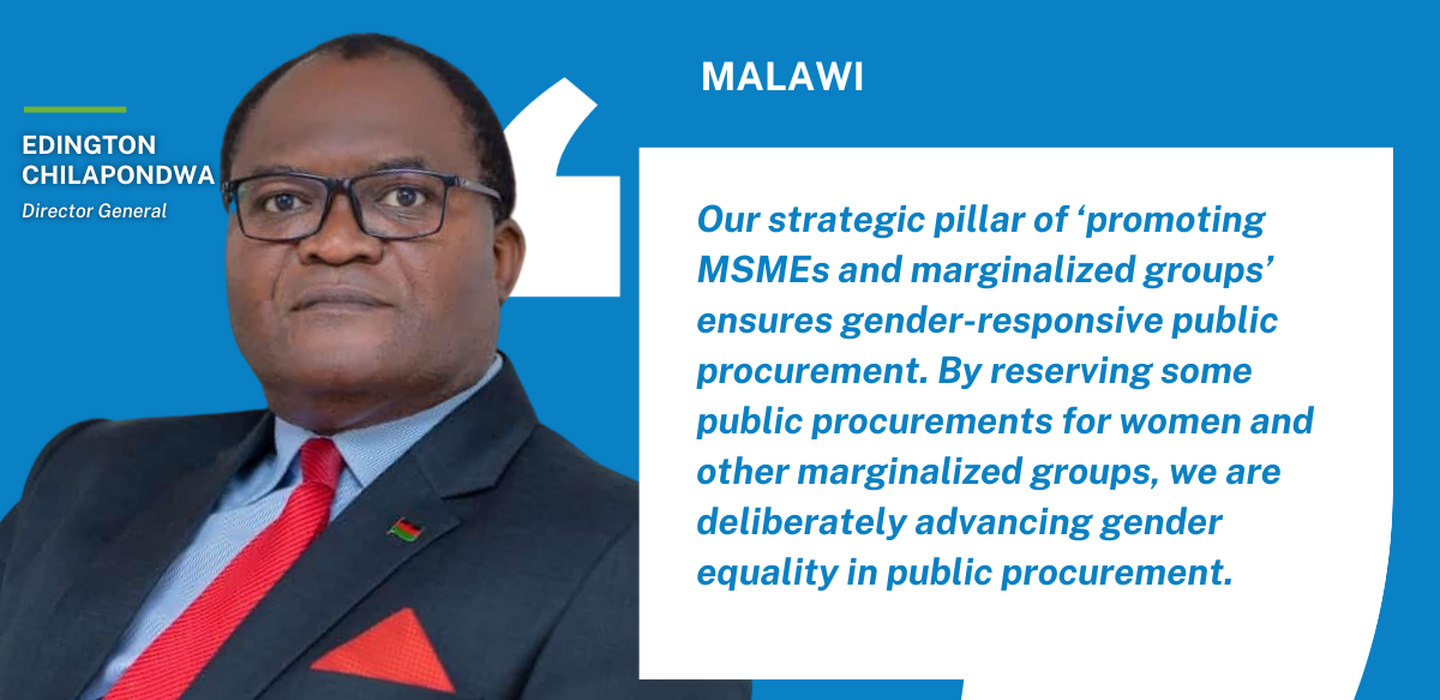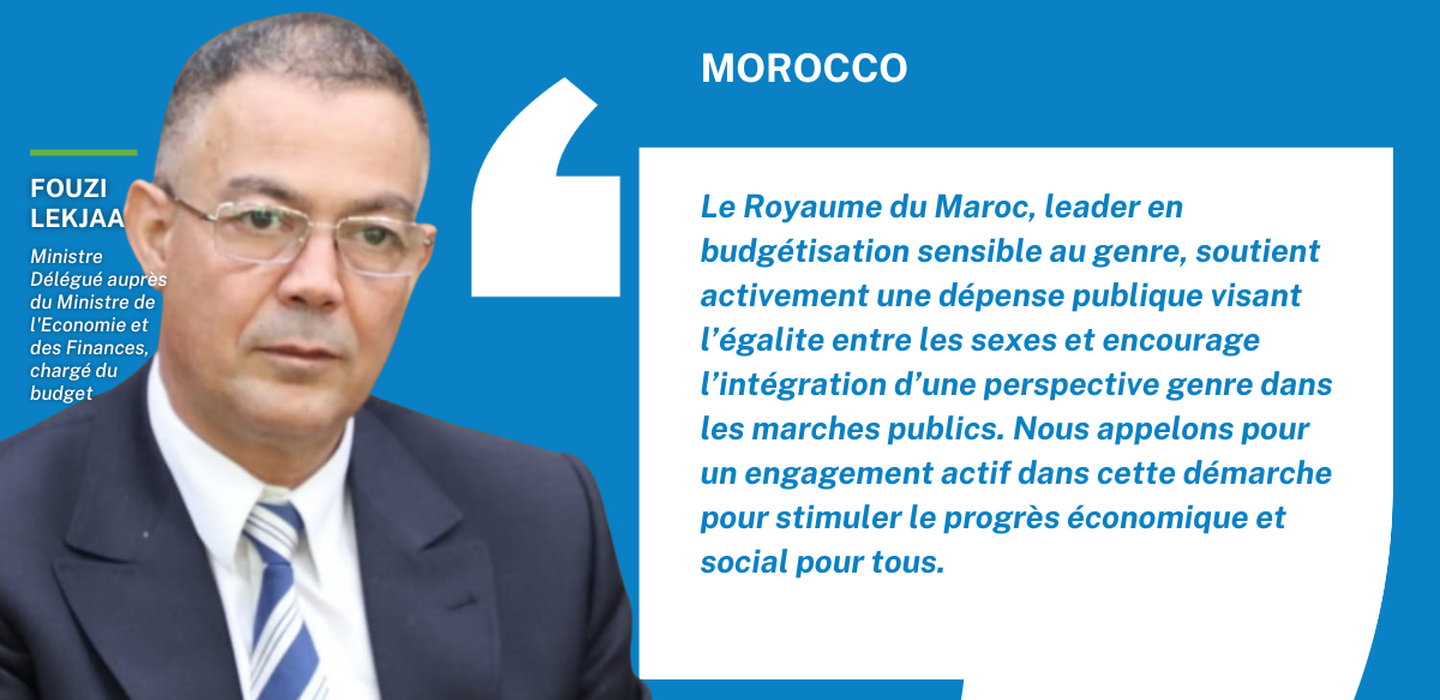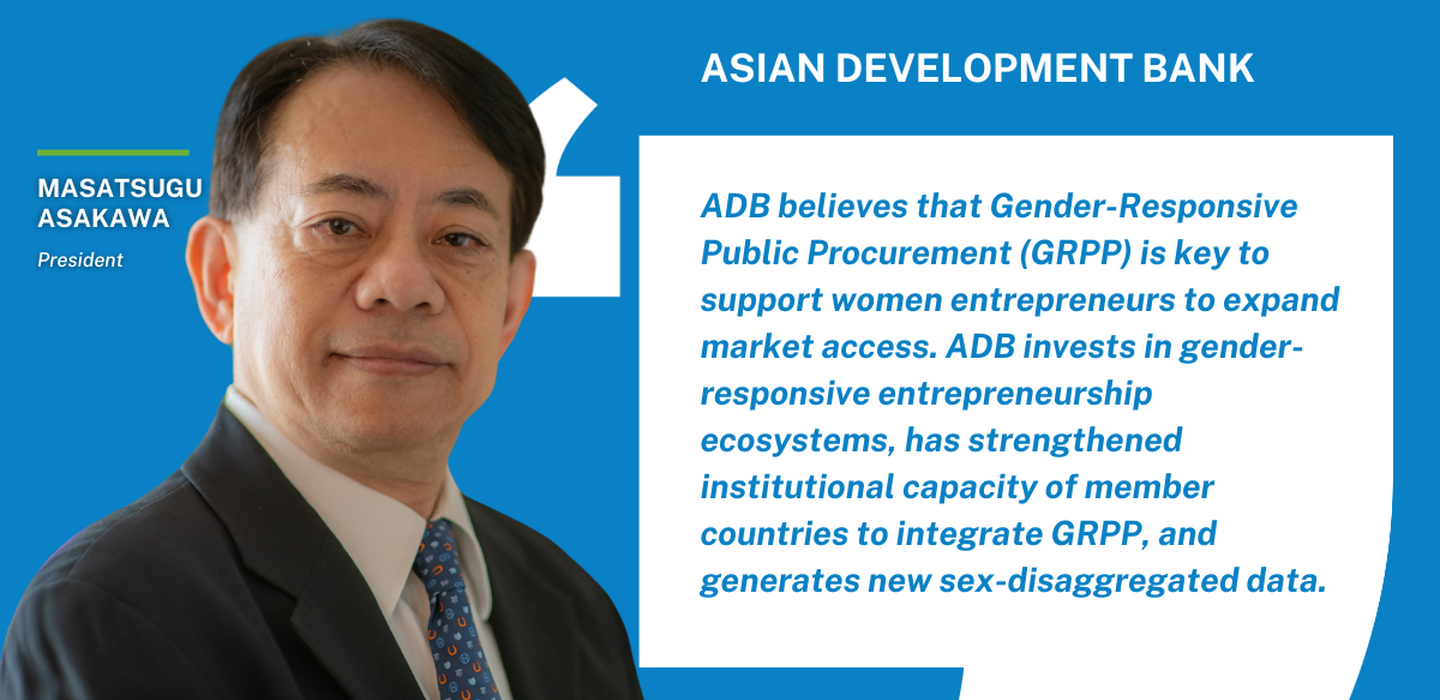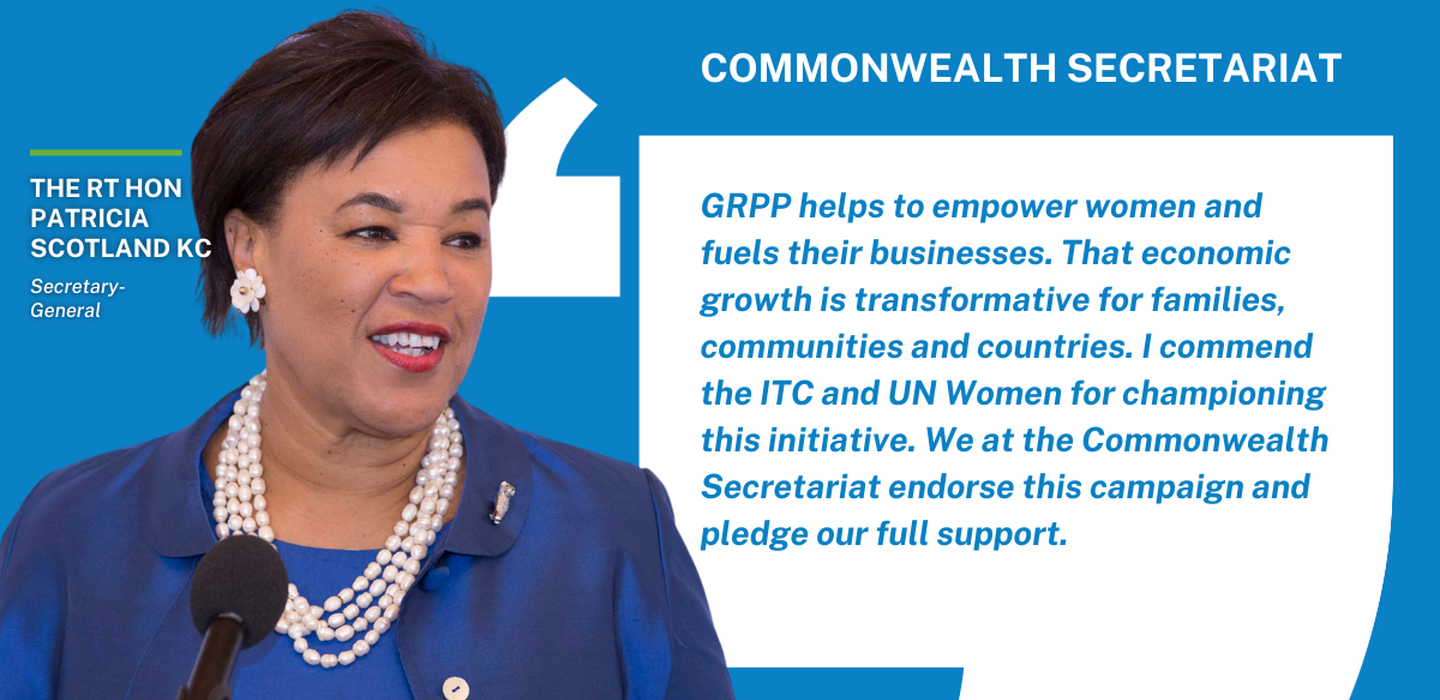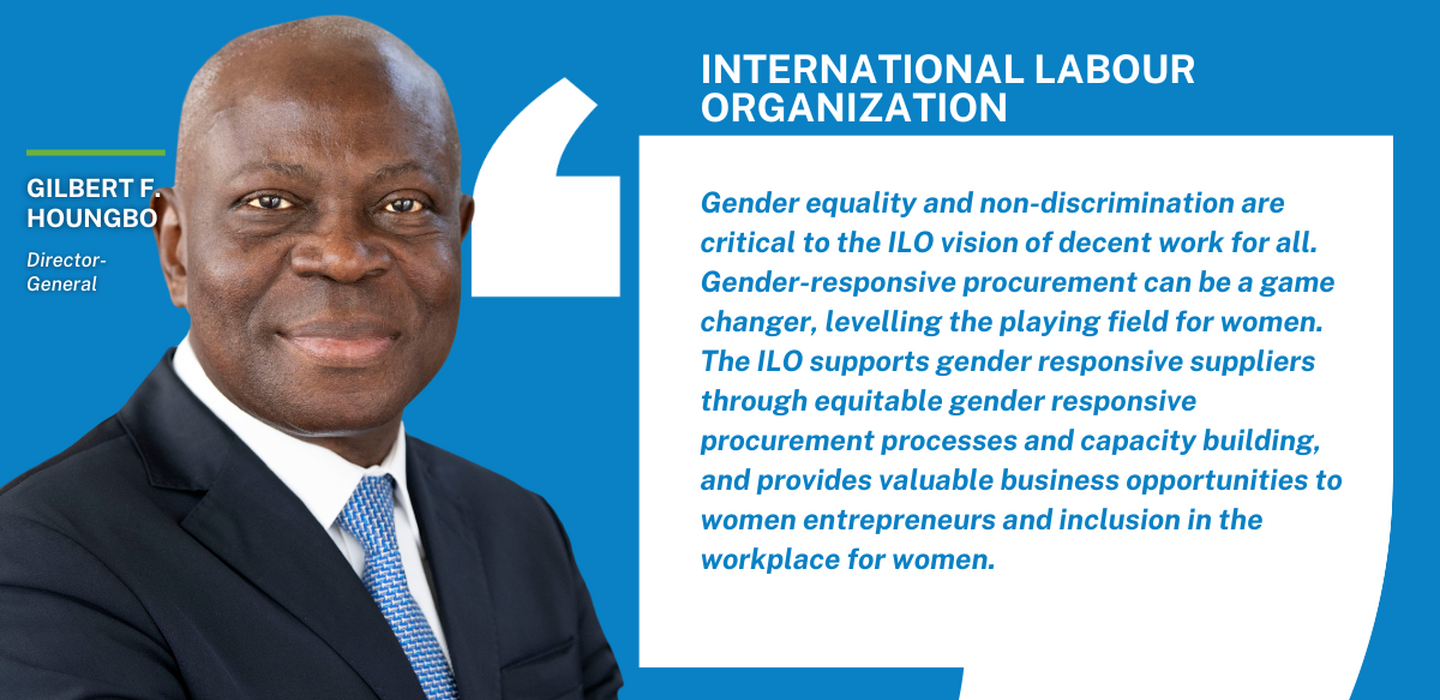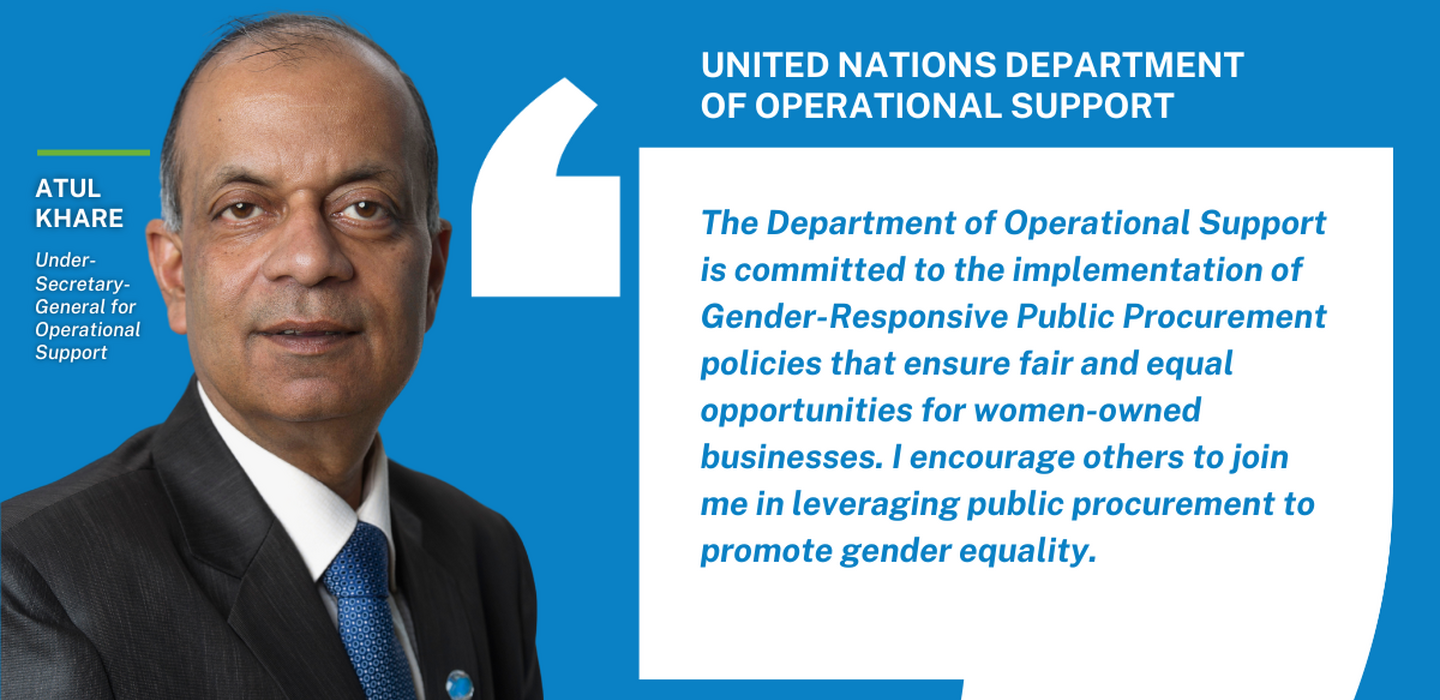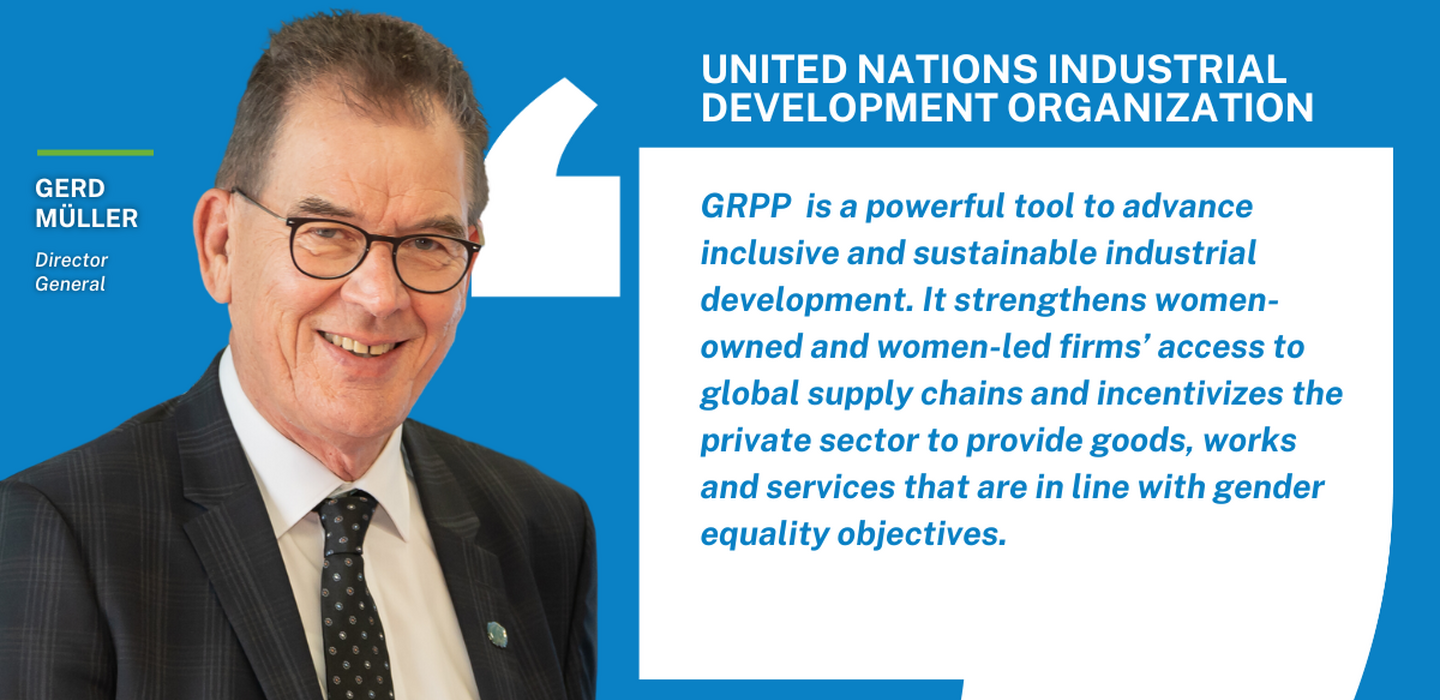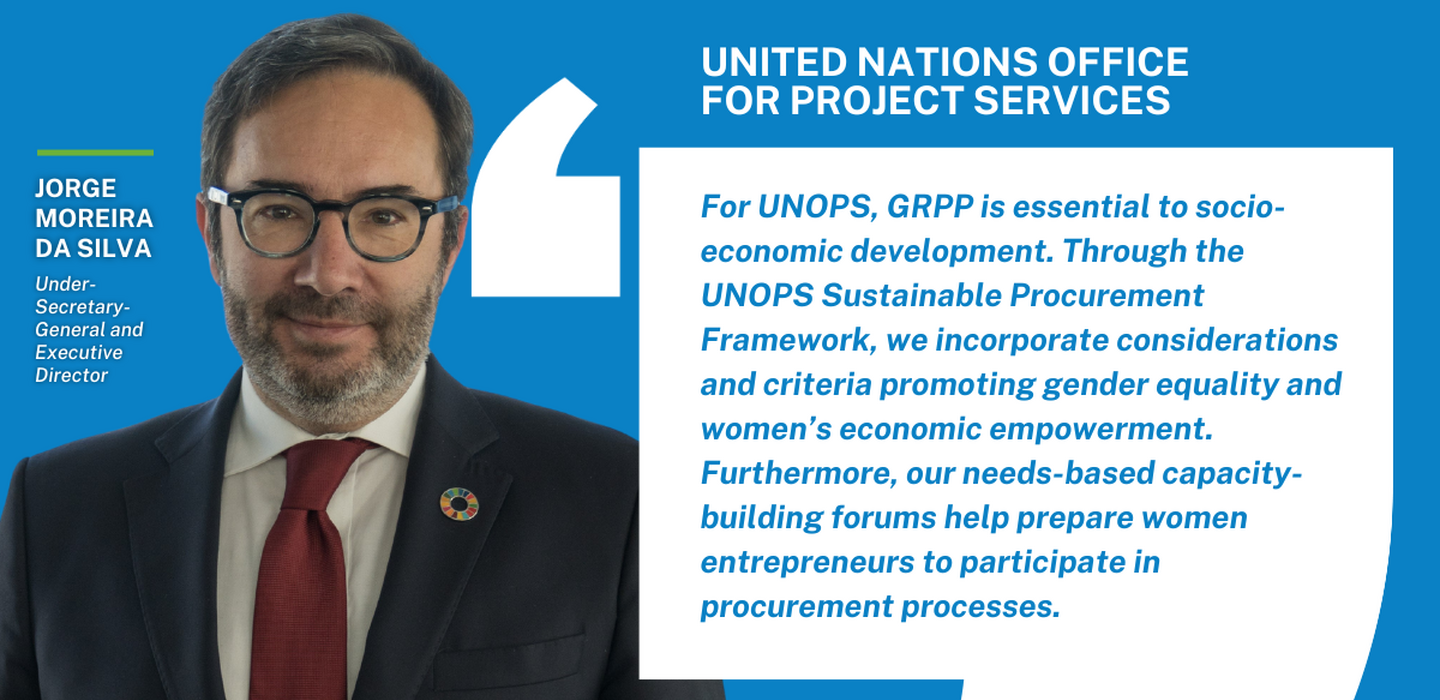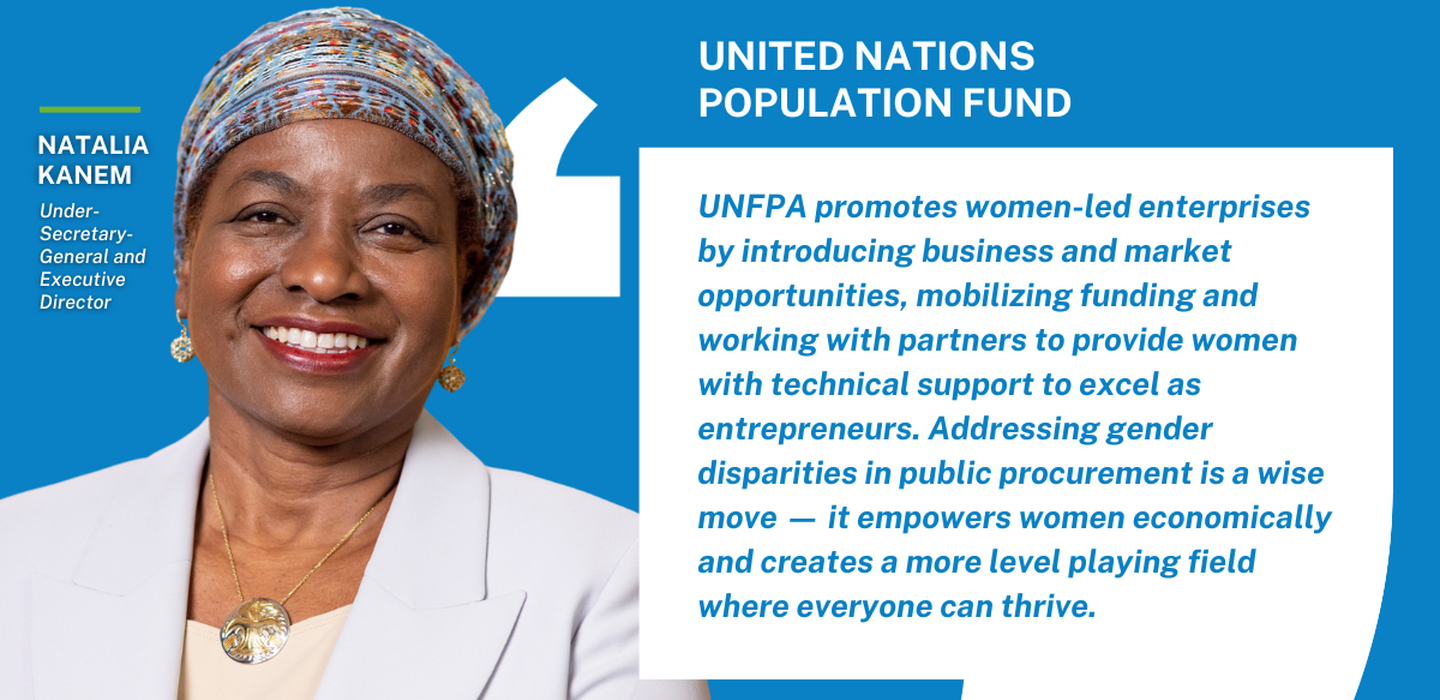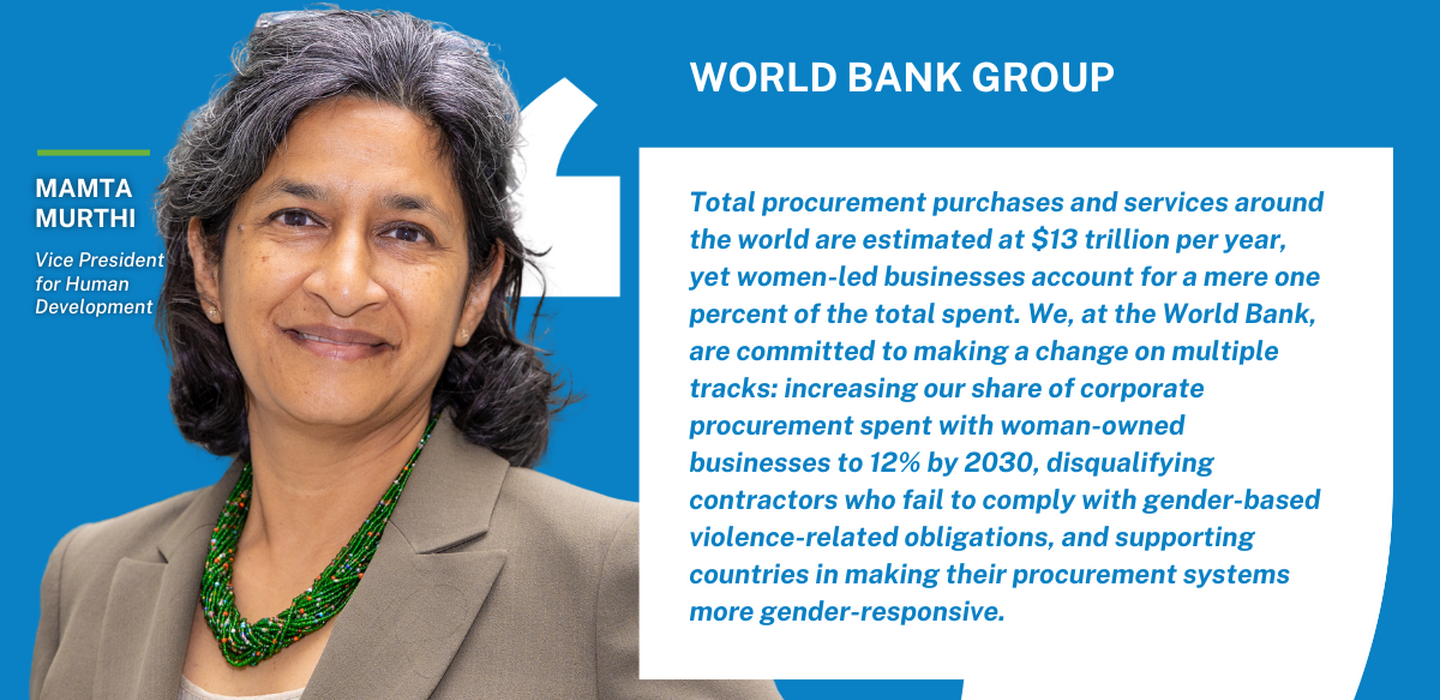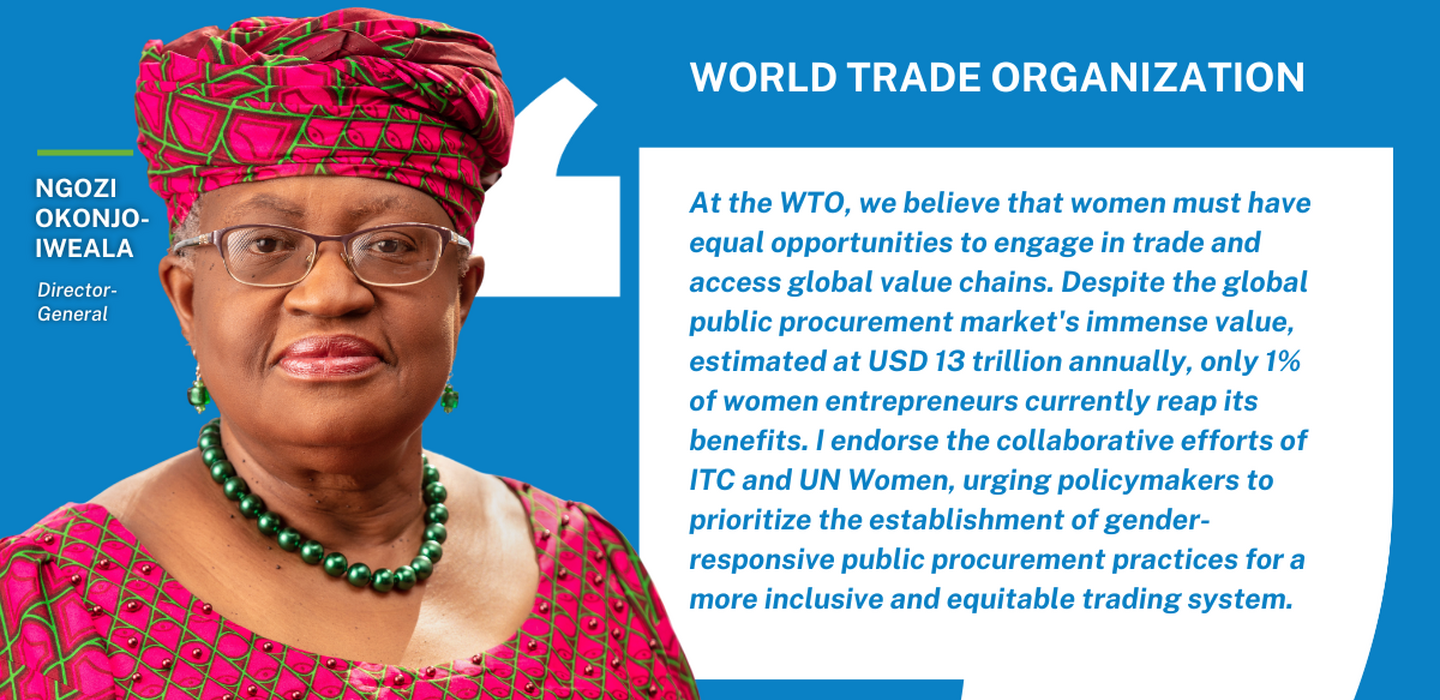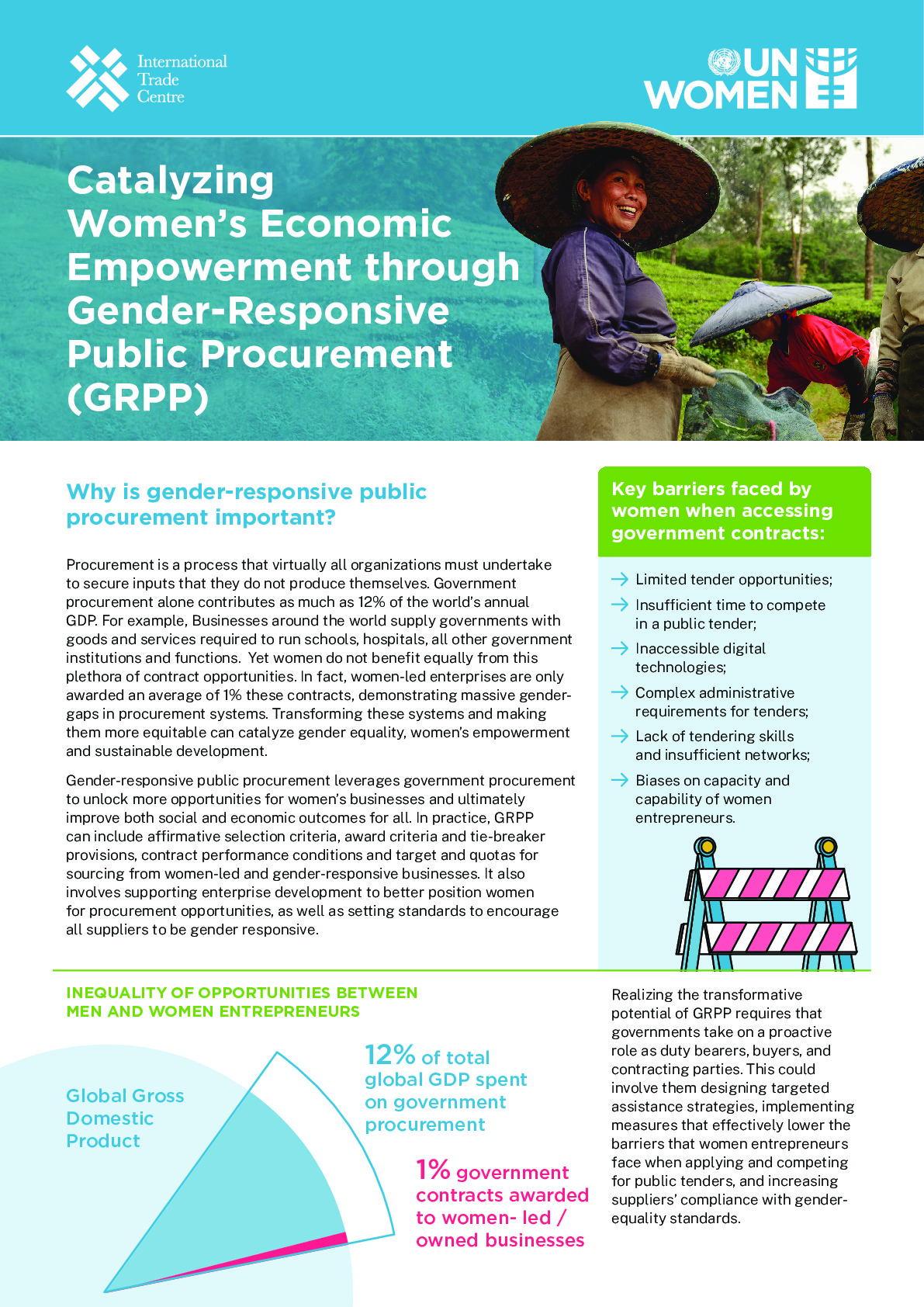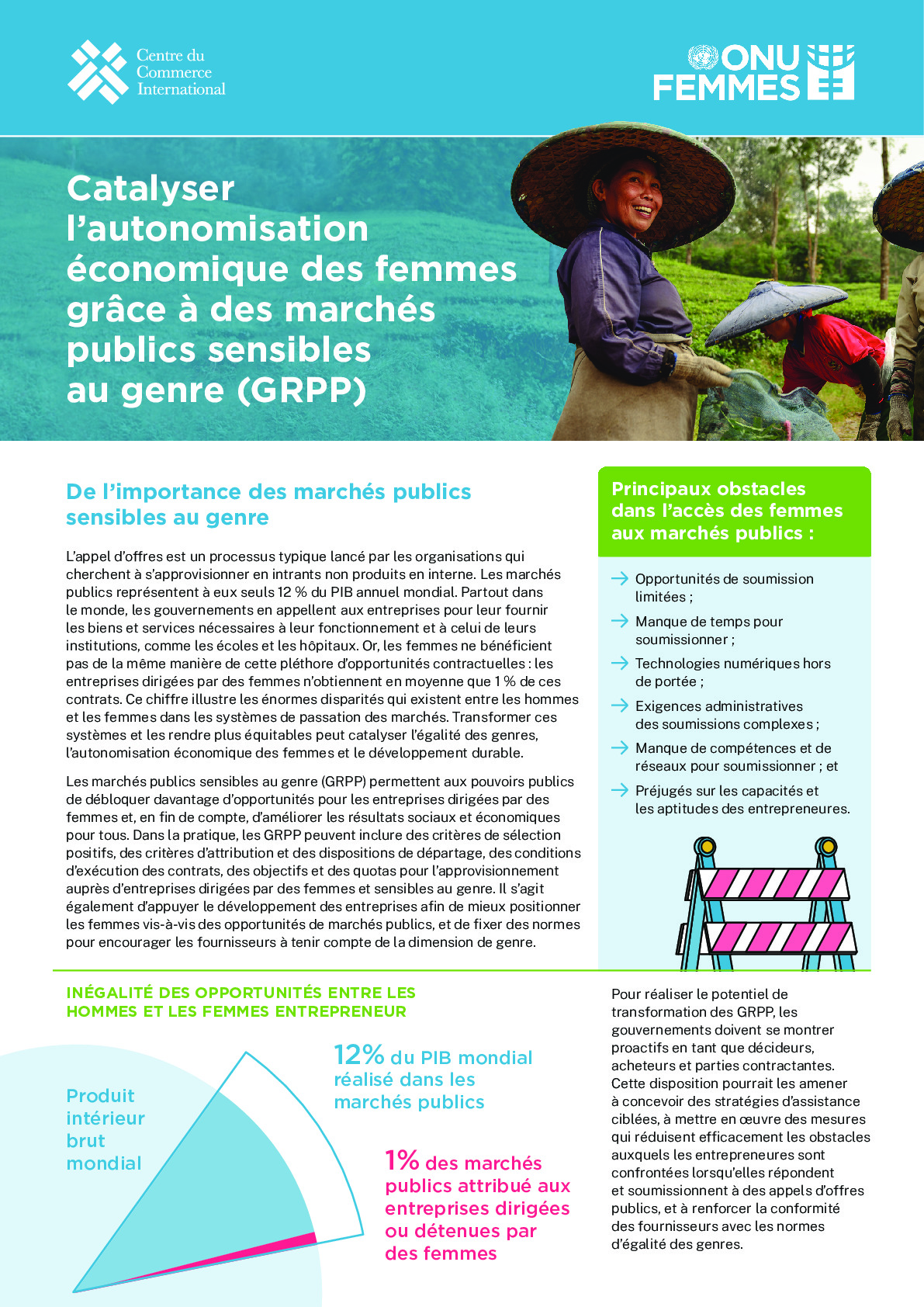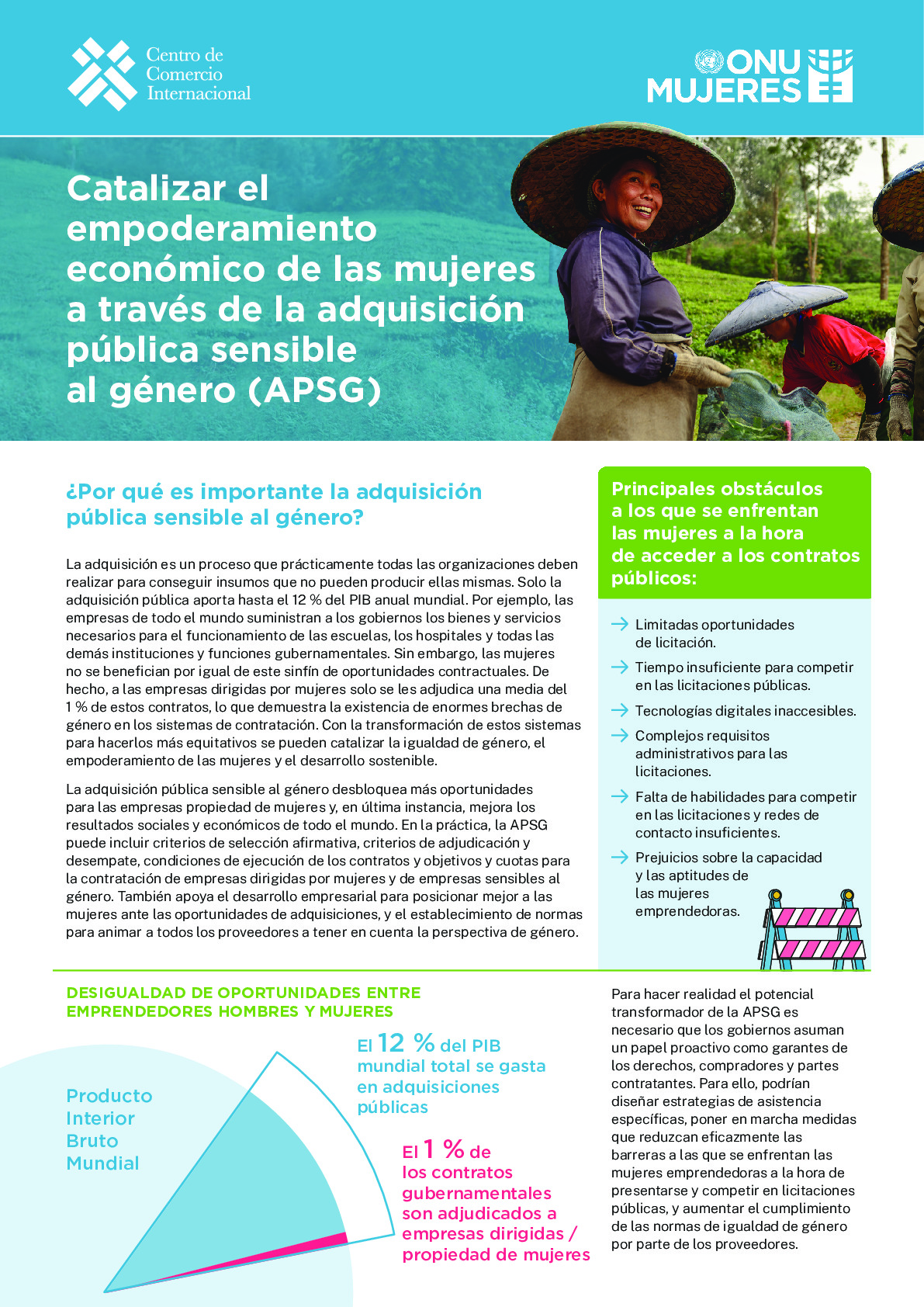ITC-UN Women: Global Campaign on Gender-Responsive Public Procurement
Research from the International Trade Centre (ITC) reveals that public procurement constitutes 10-15% of developed countries' GDP and up to 40% for developing countries.
While this offers small businesses a huge opportunity to grow, only 1% of government contracts go to women-owned businesses. This is despite women owning one in three firms globally.
Women-owned businesses, which tend to be smaller, face particular barriers when bidding for government contracts. These challenges include:
- Bundled tenders
- Complex procedures
- Financing constraints
- Lack of information and networks
Giving women entrepreneurs an equal shot at doing business with the government benefits everyone. For women-owned businesses, winning such contracts allows them to grow their businesses and export; it means more jobs for women and men. For consumers like us, GRPP means a wider range of more innovative products and services.
Moving the needle on this 1% can lead to transformative outcomes for not just women-owned businesses, but everyone.
This is why ITC and UN Women are spearheading a global campaign to make sourcing from women a driver of gender equality.
Country pledges
-
ITC welcomes country pledges from (i) governments with established GRPP programmes and (ii) governments who are keen to make their foray into GRPP.
-
A country pledge is a country commitment, outlining specific actions that a government plans to take. There is a menu of options that a country can select from.
-
Countries should also submit a high-resolution photo of the representative (shoulders apparent) delivering the quote. The name and title should likewise be indicated. Digital quote cards will be created to highlight individual country’s commitment to GRPP.
-
The quote may be submitted in either English, French or Spanish (see flyer for additional details).
Statements of support
-
We welcome statements of support from (i) international and regional organizations as well as (ii) governments.
-
A statement of support is a maximum 40-word quote about your country's or organization's support for GRPP in its policies. It also includes a call to action for other countries and organizations to do the same.
-
Countries should also submit a high-resolution photo of the representative (shoulders apparent) delivering the quote. The name and title should likewise be indicated. Digital quote cards will be created to highlight the country’s or organization’s commitment to GRPP.
-
The quote may be submitted in either English, French or Spanish (see flyer for additional details).
Sharing our messages on social media
Help us get our messages out there by ‘liking’, commenting or sharing our posts on your various social media channels. Don’t forget to tag us using the respective handles:
-
Facebook: International Trade Centre
-
Instagram: @internationaltradecentre
-
LinkedIn: International Trade Centre
-
X (formerly Twitter): @ITCnews
Country pledges
- Australia
- Bangladesh
- Canada
- Dominican Republic
Statements of support
Governments
- Australia
- Bangladesh
- Canada
- Chile
- Dominican Republic
- Ecuador
- El Salvador
- European Union
- Kenya
- Malawi
- Morocco
International or regional organizations
- Asian Development Bank (ADB)
- Commonwealth Secretariat
- Food and Agriculture Organization of the United Nations (FAO)
- International Labour Organization (ILO)
- United Nations Department of Operational Support (UNDOS)
- United Nations Industrial Development Organization (UNIDO)
- United Nations Office for Project Services (UNOPS)
- United Nations Population Fund (UNFPA)
- World Bank Group (WBG)
- World Trade Organization (WTO)




